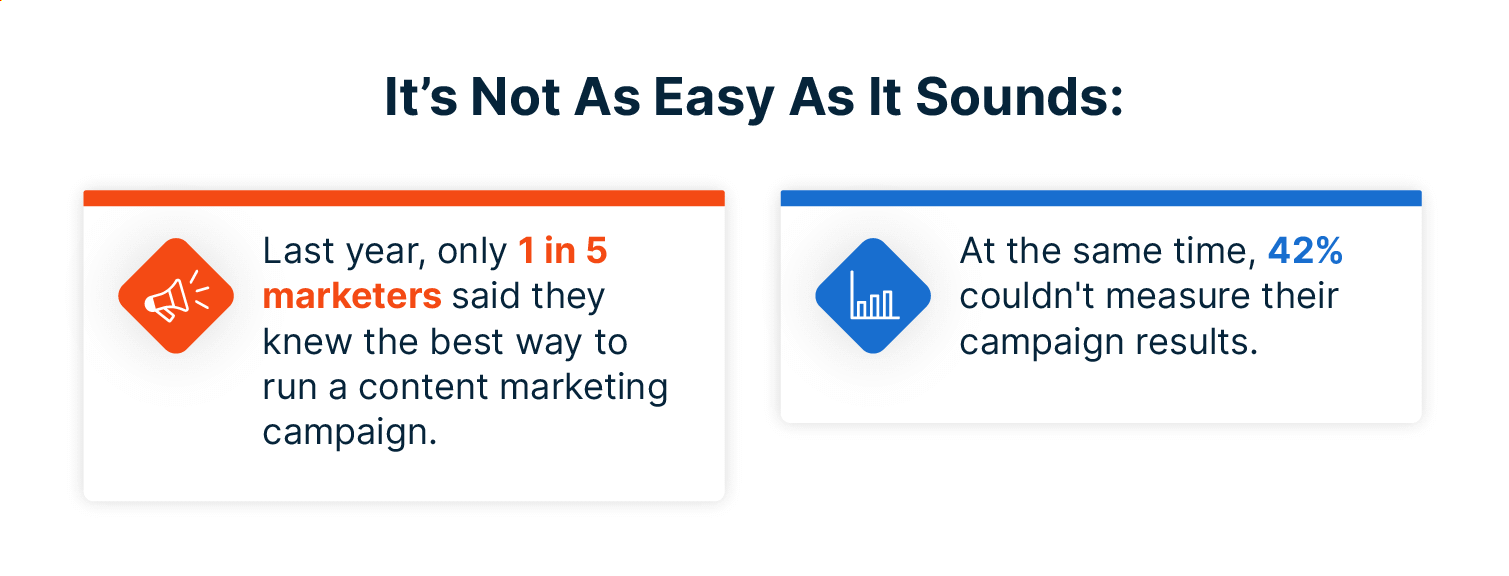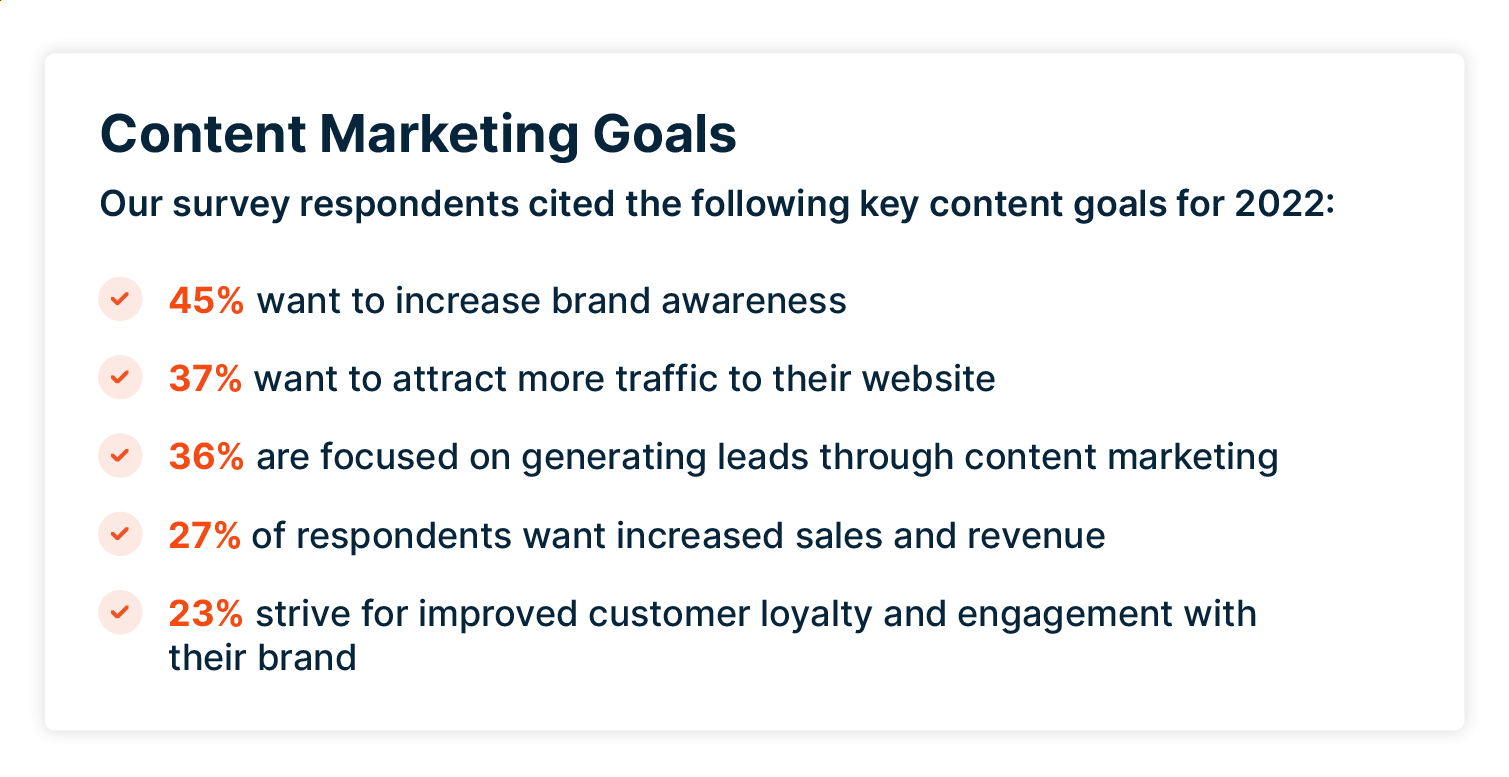
5 Content Marketing Metrics You Should Be Monitoring
Article Summary
Monitoring the right metrics is crucial for assessing the effectiveness of content marketing efforts. The article highlights five key metrics that marketers should track. These include website traffic, which provides insights into audience engagement and content reach; bounce rate, indicating the relevance of content to visitors; conversion rate, measuring the effectiveness of content in driving desired actions; time spent on page, reflecting the content's ability to retain audience attention; and social shares, showcasing the content's shareability and virality. By tracking these metrics, marketers can gain valuable insights and refine their strategies for better results.
Over 90% of marketers in 2023 are using content marketing as part of their strategies. However, only 60% of marketers use sales to measure their content’s performance. Two other primary content marketing purposes for tech companies are brand awareness and engagement, which use different content marketing metrics.
Explore five vital content marketing metrics you should track in your campaigns besides sales.
Key Takeaways:
- Tracking content marketing metrics helps you increase your return and improve your marketing
- Choose your metrics based on your marketing goals
- The most important metric to monitor is the number of leads you generate
🤫 PS: Looking for pricing on custom content for Tech? Get a price list here
Why Is Measuring Your Content Marketing Results Important?
Even though most marketers agree that content is essential, 42% aren’t sure how to measure their results. If you don’t have a content marketing reporting process, you’ll miss valuable growth opportunities and waste resources on low-value strategies.

Here are three reasons you need to start measuring and reporting on how your content performs.
Understand Your ROI
The most important reason to monitor how well your content performs is that you need to ensure you aren’t spending more than you receive back in sales. Unfortunately, measuring your ROI isn’t as simple as counting your sales and comparing them to your marketing costs.
Most of your tech marketing content won’t end directly in a sale. For instance, many marketers say consumers need roughly eight touchpoints before purchasing from a brand. That number is even larger for B2B sales with longer sales processes.
Understanding your content’s ROI requires a greater understanding of a customer’s lifetime value, and how building a solid foundation with a consumer through building and nurturing that relationship will result in more sales down the road.
Know How Well Your Content Performed
Content metrics will give you useful feedback on your content’s performance. For example, monitoring reader interactions tells you how many people saw your content and what percentage of those impressions responded.
Performance metrics help you optimize your content to create more relevant materials that resonate with your target audience.
Effectively Delegate Your Resources
Monitoring content marketing metrics saves you money because you can shift your resources and focus on high-performing content strategies. For example, you can perform A/B testing to find what channels and content distribution methods bring in the most leads. Then you can focus most of your resources on those high-return strategies.
How To Choose the Best Metrics for Your Content
The metrics you choose to track will depend on the goal of your content marketing. For example, about 45% of marketers use content to increase brand awareness. Therefore, metrics like traffic and engagement would be a top priority.

5 Content Marketing Metrics You Can Track in Your Campaigns
Use these five metrics to stay informed about the performance of your marketing content.